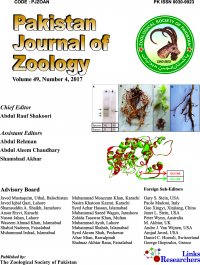Purification and Characterization of an Acidic Polygalacturonase from Grapes and its Potential to Improve Juice Quality
Purification and Characterization of an Acidic Polygalacturonase from Grapes and its Potential to Improve Juice Quality
Zahra Nazir1, Saba Ijaz1, Roquyya Gul2 and Mahjabeen Saleem1,*
ABSTRACT
To share on other social networks, click on any share button. What are these?










